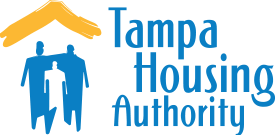Avoiding Burnout: A Leader’s Responsibility to Self and Team

by Jerome D. Ryans, President & CEO, Tampa Housing Authority
Leadership is both a privilege and a responsibility. In the housing sector, where the stakes are high and the needs are urgent, it is easy for leaders to overlook their own well-being in service of others. However, neglecting personal health and balance undermines long-term effectiveness. Mental Health Awareness Month offers an important opportunity to recalibrate and reflect on how leaders can sustain themselves-and their teams-without succumbing to burnout.
Effective leadership requires intentional effort to manage the demands of the role while preserving personal health. Leaders often experience constant decision-making pressure, time scarcity, and the expectation to remain steady in crises. These conditions, left unchecked, can lead to fatigue, diminished clarity, and burnout. Avoiding these outcomes demands a disciplined approach. It is important to keep healthy habits, time management, and role clarity in check.
The foundation begins with making time for health. Leaders must prioritize proper sleep, healthy eating, and regular physical activity. These are not luxuries. They are essential components of cognitive performance, emotional resilience, and professional stamina. Skipping meals, losing sleep, and abandoning exercise routines in pursuit of productivity inevitably lead to diminished performance. No meeting or deadline should compromise the consistent habits that keep you physically and mentally prepared to lead.
Leaders must also make time for family and friends. The role of a leader can consume evenings, weekends, and holidays if boundaries are not set and protected. Time with family and friends restores perspective, reminds leaders of their purpose, and builds emotional grounding. A calendar full of obligations is not a measure of leadership success. Creating space for family and personal relationships reflects maturity, discipline, and a recognition that the health of the individual sustains the health of the organization.
Understanding the distinction between managing and leading is equally critical. Management focuses on tasks, procedures, and control. It ensures processes are followed and operations run smoothly. Leadership, on the other hand, is about vision, strategy, development, and inspiration. It requires stepping back from the urgent in order to address the important. Leaders who immerse themselves entirely in management tasks neglect the long-term mission and stall the growth of those around them.
This is why leaders must make time to think. Thinking is not idle. It is a form of work-deliberate, structured, and necessary. Strategic clarity, innovation, and problem-solving are impossible without time for reflection and focused attention. Leadership requires more than action; it demands foresight. A busy schedule does not equal progress. Time to think enables leaders to work on the organization, not only in it.
To succeed in this, leaders must coach their teams to assume operational responsibilities. Developing others to manage tasks, solve problems, and drive outcomes is a key leadership function. Delegation is not about giving away responsibility. It is about empowering others to contribute meaningfully. When you distribute responsibility, you free yourself to focus on the broader mission. This also builds resilience across the organization and cultivates the next generation of leaders.
Delegation also supports trust, accountability, and professional growth. When team members are trusted to handle operations, they develop new skills and take ownership of outcomes. The leader then has the space to lead with clarity, purpose, and sustainability.
Mental health is not a separate conversation from leadership. It is embedded in every aspect of how leaders show up, make decisions, and influence culture. Leaders in housing have a duty to care not only for their communities but also for themselves and their teams. Prioritizing health, maintaining balance, and focusing on leadership over management, we build organizations that are resilient, effective, and humane.



